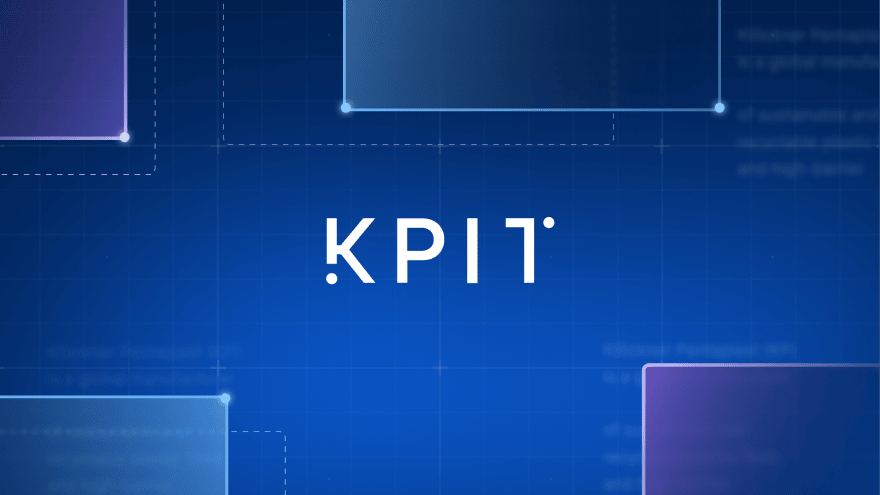Maximizing Account Planning Efficiency with AI-Powered Deep Market Data
Traditional account-based marketing (ABM) often struggles with inefficient workflows and missed opportunities due to a lack of deep market data.
Manual research, data compilation, and outdated insights into industry workloads, emerging use cases and shifting priorities wastes valuable time and resources.
It causes
- Lost productivity: Enterprise ABM teams spend their time scouring data on emerging industry workloads and business intentions specific to key accounts. To make matters worse, this data often precludes important context pertaining to the broader market trends.
- Data decay: B2B databases can experience an accuracy decline of 2% to 5% per month, leading to significant data decay. This translates to an annualized rate of approximately 22.5%.
58% of enterprise ABM teams make decisions based on outdated data, leading to misguided strategies and missed opportunities. - Knowledge gaps: 63% of ABM representatives engage with accounts without sufficient knowledge about key drivers within their industries or why they are focusing on those initiative
These activities diminish the effectiveness of their account-level outreach efforts. Among companies with complete ABM programs, 53% cite data quality issues as a major challenge.
Deep, actionable and accurate insights at a market-level are crucial to transform ABM.
Access to a comprehensive understanding of target industries, including current trending use cases, key accounts, partnerships, decision-makers, technology utilization, and workloads, allows for targeted, high-impact engagement.
This multidimensional approach combines granular sales intelligence, peer insights, and deep understanding of market priorities to enable truly informed go-to-market (GTM) strategies.
Transforming Account Planning with AI-Powered Sales Intelligence and Market Insights
Leveraging AI-powered sales intelligence, organizations can gain comprehensive insights into various market factors, enabling them to make informed strategic decisions during the top-of-the-funnel stage.
Industry-specific use case intelligence
Sales intelligence platforms leverage access to global multi-dimensional market data to pinpoint the evolving trends and use cases within an industry with high precision.
This translates to a direct and tangible advantage in your GTM strategy by giving insights on what target accounts within that industry would be interested in.
Sales teams at an IT service provider identify a trend in edge computing for data efficiency in the technology industry.
The platform highlights an automotive industry workload around autonomous vehicle navigation systems using edge computing.
Signals from public sources reveal how a leading automotive company improved safety and reduced latency by integrating edge computing into its software.
These insights enable the sales team to target automotive companies, emphasizing the proven benefits of edge computing for autonomous navigation.
This targeted, market-specific knowledge, derived from the platform, empowers the sales team to tailor their messaging and resonate with potential clients in the automotive sector.
Identify high-value accounts within target industries that are solution-fit
Beyond industry-level priorities, it’s crucial to identify high-value accounts within these industries that are ready to embrace your solutions.
AI-powered sales intelligence evaluates account fit based on firmographic data, technographic signals, and business priorities, ensuring focused outreach efforts.
In the fintech sector, an AI-powered sales intelligence platform identifies rapidly growing digital payment startups by analyzing firmographic data.
It examines technographic signals, such as tech stacks and upgrades, to pinpoint companies facing scalability challenges.
Additionally, it highlights business priorities like international market expansion.
These insights help enterprise sales teams generate a list of high-potential prospects aligned with cloud-based scalability solutions, enabling focused outreach to companies most likely to benefit and invest.
C-suite priorities and strategic roadmaps across industries
Understanding the strategic priorities of C-level executives is paramount for aligning your value proposition with their goals.
Sales intelligence provides insights into these priorities by analyzing executive communications, public statements, and strategic initiatives.
These insights can be extracted by analyzing public statements made by the executives, company filings and more.
Data from public statements, filings, and interviews reveals that a retail CTO prioritizes digital transformation to enhance e-commerce and customer experience.
By identifying this priority, your ABM team can tailor pitches to showcase how AI-driven analytics optimize online shopping, personalize interactions, and streamline operations.
Aligning with the CTO’s strategic goals demonstrates understanding and positions your solution as essential to their digital transformation efforts.
Digital transformation and buyer intent tracking
Monitoring digital transformation projects and understanding buyer intent within a specific industry are crucial for aligning your offerings with the needs of target accounts.
Sales intelligence platforms provide insights into these areas by analyzing technology investments and tracking digital engagement signals.
Sales intelligence reveals a manufacturing company heavily investing in IoT for smart factory enhancements.
This allows your sales team to propose IoT-integrated solutions aligned with their digital transformation strategy.
By analyzing company priorities, technology investments, and industry trends, your team can tailor messaging to address strategic objectives and immediate needs.
This alignment positions your offerings as essential to their initiatives, increasing the chances of successful engagement.
Industry partnerships and M&A activity
Sales intelligence platforms track industry partnerships and mergers and acquisitions, providing valuable context for sales strategies.
For example, if two major cloud computing players merge, combining market and account insights helps identify cross-selling and upselling opportunities.
Your ABM team can analyze how the merger impacts product offerings, customer base, and strategic priorities, enabling tailored pitches to address gaps or new needs.
Similarly, if a competitor partners with a key provider, real-time market awareness guides messaging to highlight your strengths and solutions.
This proactive approach equips your sales team to seize emerging market opportunities effectively.
Benefits of AI-driven ABM
Enterprises can realize significant benefits with AI-powered market intelligence:
- Enhanced targeting of high-value accounts: Focus resources on the most promising prospects that solution-fit.
- Increased relevance of initial outreach: Tailor messaging to resonate with specific industry needs, buyer intent, and strategic priorities.
- Competitive advantage through early-stage insights: Understand C-suite priorities, track digital initiatives, and monitor partnership and M&A activities.
- Improved efficiency: Automate data collection and analysis, reducing the resources for manual research.
- Data-driven decision making: Make informed strategic decisions based on accurate and up-to-date market insights.
- Proactive strategy development: Anticipate market changes and adjust account plans proactively to stay ahead of the competition.
Draup, a sales intelligence platform equips ABM teams with the insights required to maximize account planning efficiency and effectiveness.
Draup worked with large enterprises overcome ABM challenges by enabling them to:
- Shorten their sales cycles,
- Increase deal sizes, and
- Reduce their time-to-impact by 50%.
Reach out to Draup for a demo!









.svg)

.svg)
.svg)
.svg)













.svg)





.svg)





.svg)
